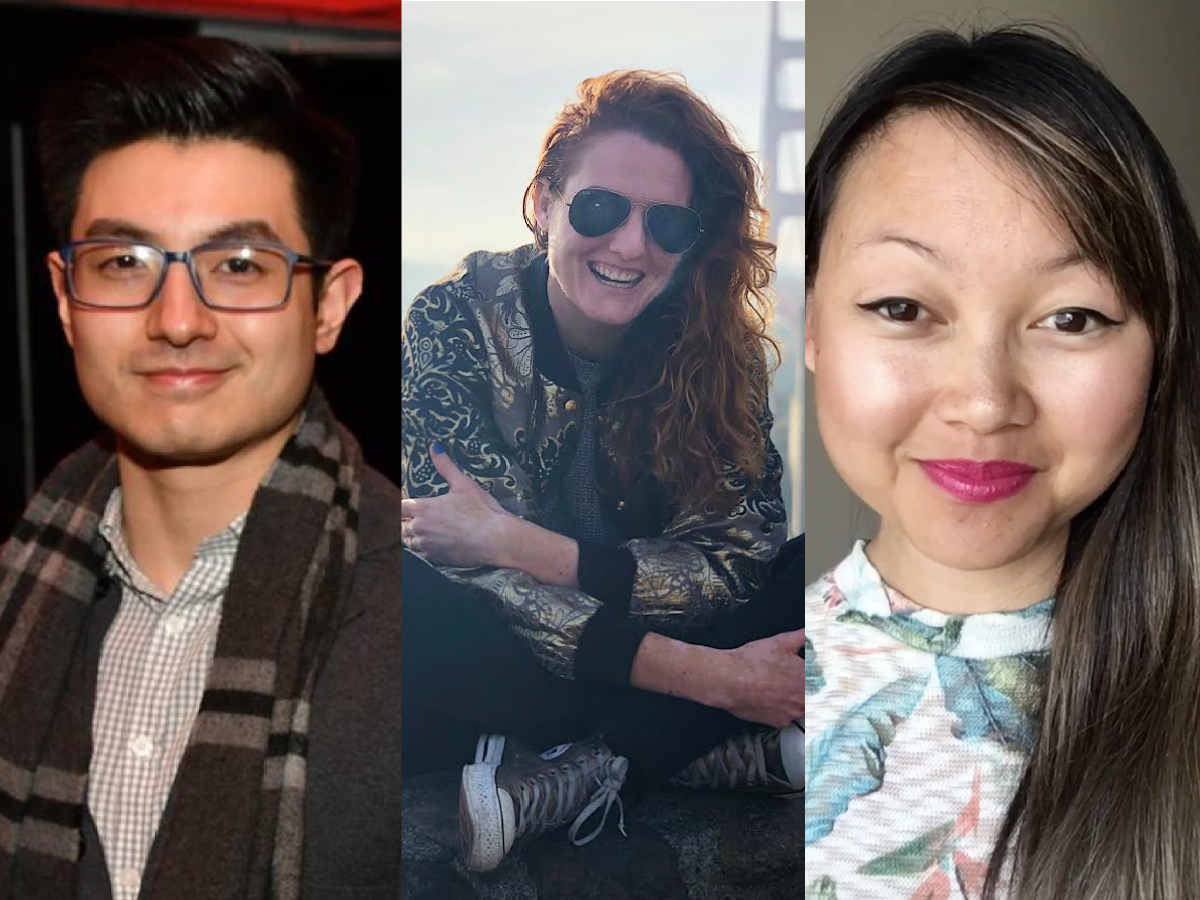The Realities of Being a 2SLGBTQ+ Entrepreneur
June 29th, 2020
By: Annemarie Cutruzzola
Pride Month is coming to an end, and although it looked a little different this year, the important meaning behind it remains the same. It's a time to celebrate a diverse spectrum of identities and the progress our society has made, but also a time to keep advocating for the inclusion and acceptance of all. Coupled with the rise of the Black Lives Matter movement, the importance of speaking up and demanding equality for marginalized groups is now clearer than ever.
But what does all of this look like in the realm of entrepreneurship? On top of all the challenges that come with being an entrepreneur, those who identify as 2SLGBTQ+ (Two-Spirit, Lesbian, Gay, Bisexual, Transgender, Questioning or Queer) often face additional obstacles in their professional lives. These can range from a lack of diversity around them to subconscious biases to outright discrimination. Unfortunately, in addition to being personally hurtful, these factors can have a negative effect on a startup and its ability to grow. At some point, many 2SLGBTQ+ entrepreneurs face a difficult decision: do they hide their identity at work or risk losing an important partnership or investment because of it?
It’s also important to acknowledge that some entrepreneurs are at the intersection of multiple marginalized groups. Women, Black people, and Indigenous people all face unique challenges in the world of entrepreneurship. Beyond Pride Month, the SVZ stands with the 2SLGBTQ+ community and all marginalized communities, and advocates for equal opportunities and better representation for all.
This starts within our own community. So, we're putting a spotlight on two 2SLGBTQ+ entrepreneurs incubated at the SVZ. Kristina Flynn is an SVZ member, founder, and social entrepreneur, and she identifies as a lesbian. Vic Chiang is an SVZ member and co-founder of Savyn who identifies as a gay man. Read on to hear about their experiences, insights, and advice on navigating the world of entrepreneurship as a member of the 2SLGBTQ+ community.

What has your experience as an 2SLGBTQ+ entrepreneur been like? What are some challenges you’ve faced?
Kristina: It's hard to be an entrepreneur, and harder to be a social entrepreneur (we’re navigating a relatively new world of business and purpose). And being a social entrepreneur that’s also a lesbian? Easily the hardest thing I’ve ever done - and I've struggled with mental health challenges since I was 12.
It’s not just me though, it's factual. Just over 2% of venture capital goes to women and less than 1% goes to 2SLGBTQ+ founders. Revenue is great, and of course that’s the goal, but there are clear reasons for taking and using venture capital at the early stages. Without that capital support for 2SLGBTQ+ founders, it’s incredibly difficult to build sustainable and scalable businesses.
Less than 1% of venture capital goes to 2SLGBTQ+ founders.
37% of 2SLGBTQ+ entrepreneurs choose not to "out" themselves to investors.
Source: Reuters
What do you think can be done to encourage diversity in the entrepreneurial community?
Kristina: My hope is that the conversations we’re currently having about systemic racism, its affect on the Black community, and the need for anti-racist / DEI practices in business, will trickle down to positively impact all marginalized communities. “Encouraging” diversity now feels antiquated and, I believe, needs to be replaced with “Demanding.”
Vic: The solutions our startups create should tailor to marginalized groups. Other ideas include actively engaging the voices of minorities and regularly collecting data to gauge which areas warrant improvements. Furthermore, we can act as role models as demonstrated by neuroscientist Jonathan Freeman’s 500 Queer Scientists visibility campaign (external link) that advocates for 2SLGBTQ+ people in STEM fields. We should also recognize that diversity and inclusion do not present immutable goals.
"'Encouraging' diversity now feels antiquated and, I believe, needs to be replaced with 'Demanding'."
As a social entrepreneur, what is something you're doing, or want to do, to support marginalized communities such as 2SLGBTQ+ people?
Kristina: My work as a social entrepreneur has focused on two missions: amplifying the voices of marginalized youth through tech, and the redistribution of social impact capital to the highest potential organizations and individuals. We’re committed to and have built into our DNA the support of marginalized communities, especially the 2SLGBTQ+ community, through our work. Our success will be the success of these two missions.
Vic: We aspire to do more for marginalized communities. Savyn's vision espouses refugees and immigrants to get better from PTSD (Post-Traumatic Stress Disorder). A study from epidemiologist Karestan Koenen found 2SLGBTQ+ people to suffer twice the risk of developing PTSD, and psychiatrist Mark Messih estimated around 10% of refugees are 2SLGBTQ+.
Do you have any advice for aspiring 2SLGBTQ+ entrepreneurs?
"My advice is to know, and tell yourself multiple times a day, that you belong in any room you walk into."
"I advise looking beyond the “WEIRD” population (western educated industrialized rich democratic) that clearly does not represent the world. I advise embracing humility, grasping that we live in a world that remains obscure. Humility enables us to view life more holistically."
A message of support from Maria Cheung, founder of Taboo Health:
Helpful Resources
As June comes to an end, we want to highlight some resources that may be helpful to Canadian 2SLGBTQ+ entrepreneurs beyond Pride Month.
- The Canadian LGBT Chamber of Commerce (external link) helps link 2SLGBTQ+ entrepreneurs with the wider business community by providing access, engagement, visibility, and support.
- VentureOut (external link) is a Canadian non-profit organization empowering early-stage 2SLGBTQ+ professionals in tech & entrepreneurship.
- ExeQutive (external link) is a community forum for 2SLGBTQ+ entrepreneurs and other professionals based in Toronto and the GTA, helping support and strengthen Toronto’s 2SLGBTQ+ leaders.